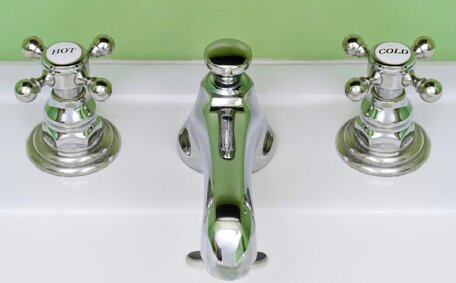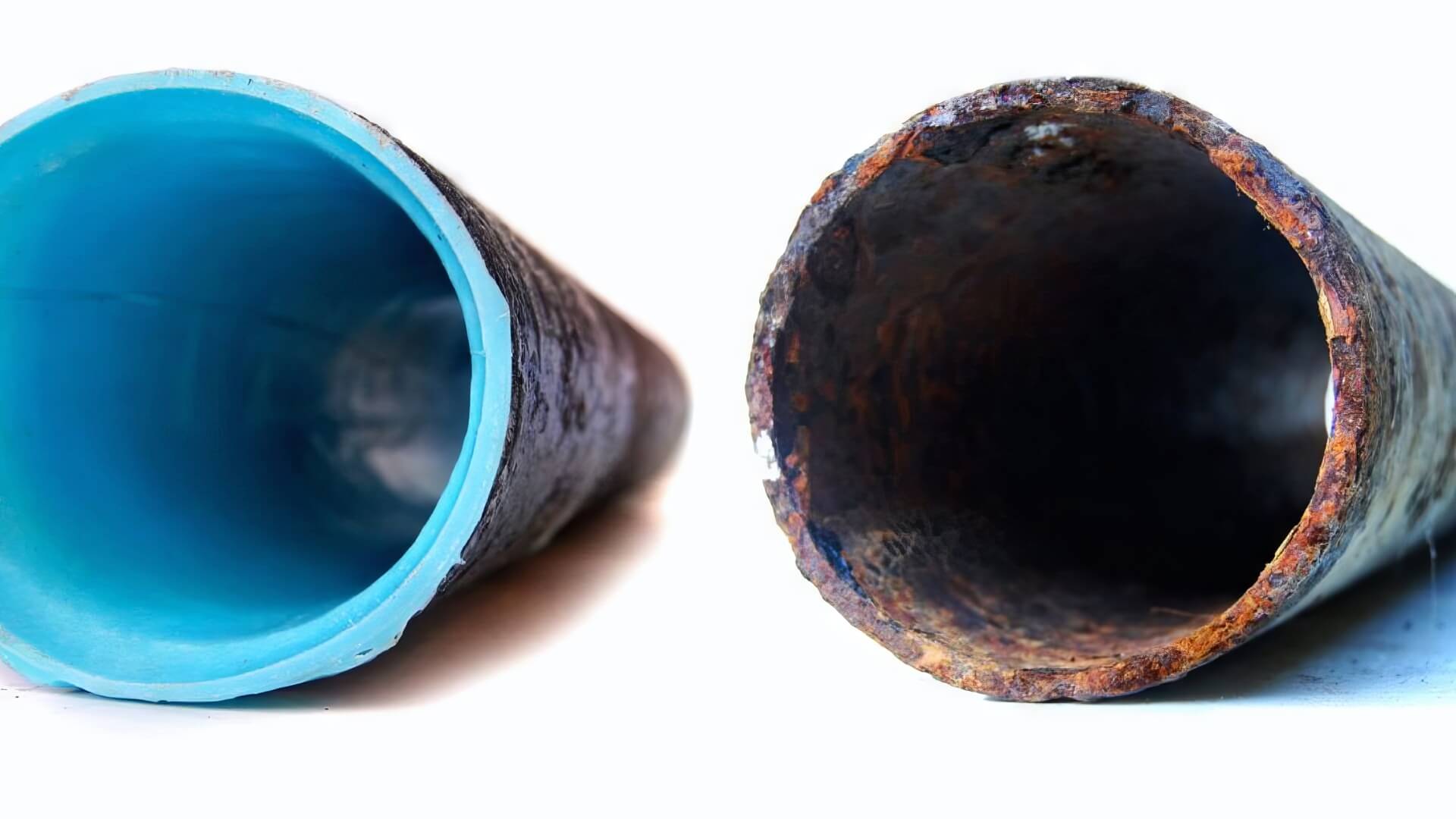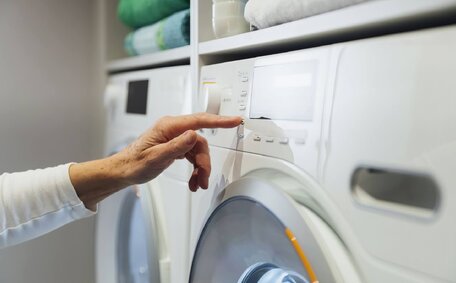Introduction to Pipe Issues in Hotels
Hotels encounter distinct plumbing challenges due to high guest turnover and heavy water system usage. Leaking pipes, corrosion, and blockages can disrupt operations and detract from the guest experience.
As pipes age over years of constant use, they become prone to cracks, blockages, and failures that require urgent repairs. Leaking pipes can cause water damage, mould growth and increase maintenance expenses overtime. Faulty drain lines also frequently clog from soap residue, hair, and other debris washed down sinks and tubs.
Many hotels are turning to trenchless pipe relining to fix common plumbing issues without the disruptions of full pipe replacement, effectively preventing leaks and extending the system’s lifespan.
What is Pipe Relining?
Pipe relining, or Cured-in-Place Pipe (CIPP) lining, is a trenchless restoration technique for damaged pipes that eliminates excavation. It involves applying an internal pipe coating of the inside of existing pipes with a seamless epoxy resin to essentially create a 'pipe within a pipe’.
The pipe relining process first involves cleaning out your pipes and assessing any damage with a camera inspection. Then, a coat inside the pipe, involving a structural liner coated with epoxy resin, is blown or pulled into the pipes.
The liner material expands and hardens to form a smooth, jointless interior lining that seals cracks, accomplishes pipe repair, and prevents future corrosion and leaks.
Pipe relining is suitable for a range of pipe types and diameters, including various types sewer pipes, stormwater drains, and drinking water lines and more. Pipe relining can prolong the service life of sewer pipe systems and drainage pipes by over 50 years, with negligible excavation, disturbance or waste. The seamless epoxy used is also an environmentally-friendly solution made from renewable resources.
Pipe relining is often quicker, more cost-effective, and less disruptive than traditional sewer replacements, eliminating the need to damage landscaping or flooring for buried pipe access.
The Pipe Relining Process
The pipe relining process involves several key steps to renew damaged pipes without full replacement:
- Initial CCTV Inspection: First, technicians insert a camera into the pipes to inspect condition and locate any breaches, cracks or blockages. This identifies areas needing repair.
- Pipe Preparation: The original pipe is cleaned using high-pressure water jets to remove rust, scale and debris. This prepares the smooth surface needed for the epoxy liner to adhere to.
- Resin Insertion: Next, a structural felt liner soaked with water-activated epoxy resin is blown or pulled into the pipe using air pressure.
- Curing & Hardening: Over 2-4 hours, the epoxy resin sets, bonding firmly to the host pipe wall. Hot water or steam can accelerate curing times if needed.
- Final CCTV Inspection: Technicians run a final camera inspection to validate the relining and check for any defects before returning the pipe to service.
Pipe relining does pipe preservation of existing infrastructure without the major upheaval of digging up pipes. With small access points, technicians can reline hundreds of metres of piping running under buildings, preserving your landscape in the process. This trenchless method is faster, cleaner and less invasive than traditional pipe replacement projects.
Advantages of Pipe Relining for Hotels
Pipe relining, by refurbishing the existing pipe infrastructure, is a cost-saving measure which can save hotels 30-50% compared to full pipe replacement costs. By preserving existing infrastructure, there is less need for expensive excavation, new materials, and labour. Pipe relining also minimises property damage and avoids revenue losses from shutting down guest rooms or amenities during repairs.
With internal pipe access, hotels can undergo major pipe repairs without disturbing daily functions. Guests, staff, and deliveries can still freely access the building during the 1-2 day relining process. This prevents revenue and reputation damage from an extended shutdown.
The durable epoxy resin lining is engineered to last 50+ years. This matches the durability of a new pipe, offering many years more of service, so hotels can avoid repeat repairs for decades. Relining extends the functional life of pipes at a fraction of replacement costs, making it a smart long-term investment.
Cost Savings
Technicians can carry out repairs via internal pipe access, avoiding costly damage and disruptions. The expeditious 1-2 day process avoids closing off guest areas, ensuring business continuity.
Over the long run, pipe relining is a smart investment that matches the 50+ year lifespan of new piping. Hotels avoid repeat repairs for decades, making this trenchless solution more economical than short-term fixes to worn pipes. The epoxy resin material is also backed by manufacturer warranties for added peace of mind.
Minimal Disruption to Operations
Unlike pipe replacement which requires digging trenches to access pipes, relining is completed from inside the pipe network.
This means technicians can reline extensive pipe systems under floors and behind walls without having to smash apart infrastructure.
Guests can still freely access rooms, amenities and common areas while work is completed. This prevents revenue losses from shutting down parts of the hotel.
Pipe relining mitigates safety hazards and the noise, dust, and debris typically generated by demolition. Hotel staff can focus on providing quality customer service instead of managing major construction hassles.
The ability to undergo major pipe repairs with virtually no visible renovation work is a key selling point for busy hotels. Pipe relining restores infrastructure without disturbing the look or enjoyment of the property for guests and staff.
Long Lasting Solution
One of the biggest long-term advantages of pipe relining is its exceptional durability. The seamless epoxy resin lining used in the process is specially engineered to withstand decades of constant water flow, pressure changes, and chemical exposure from soaps and detergents.
Studies indicate that well-installed pipe linings can last over 50 years, offering a long-term, low-maintenance solution that outperforms new piping and reduces the need for frequent repairs.
The epoxy material used in the lining process is also highly resistant to corrosion and abrasion from silt and grit particles in water flow. This durability, offering 50 years more of service, allows hotels to reinvest savings into other areas instead of recurrent plumbing costs. With quality upfront installation and periodic inspections, relined pipes remain in prime condition for several decades.
Compared to short-term pipe patch repairs, relining provides superior longevity, preserving existing infrastructure. Pipe relining is a set-and-forget solution, allowing hotels to take plumbing repairs off the agenda for the foreseeable future.
Considerations for Pipe Relining in Hotels
When considering pipe relining for hotels, it’s important to assess the suitability for different pipe materials and systems. Copper, PVC, concrete, and cast iron pipes can all be effective candidates for epoxy relining. However, pipes that are severely corroded or collapsed might not offer the robust foundation required to support the resin liner.
Hotels should assess their pipework for complex bends or geometries that may impede liner installation, as straight pipes are more conducive to relining.
Selecting a skilled contractor is essential to avoid issues like liner delamination due to improper resin application. Hotels should seek contractors with proven expertise in commercial-industrial projects, often certified by industry associations.
Typically, epoxy liners come with over a decade’s guarantee against defects.
Warranty coverage for the pipeline may also be an option.
With careful evaluation of pipeline conditions and service provider capabilities, hotels can benefit from effective, long-lasting pipe renewal through professional relining. This trenchless relining solution revitalises infrastructure with minimal impact on guests.
When to Select Pipe Relining Services
Pipe relining is optimal for pipes displaying moderate wear without necessitating full replacement. Indicators suggesting the necessity for repair, whilst retaining structural integrity, include:
- Slow or backed up drains
- Leaky pipe joints causing water spots on walls/ceilings
- Noisy water flows indicating internal corrosion
- Limited pipe damage shown on CCTV inspection
Hotels should also consider pipe relining when plumbing issues arise that would be highly disruptive to resolve by traditional pipe replacement methods. Major factors include:
- Pipes buried under floors, behind walls or under landscaping
- Needing to shut off the water supply and render rooms unusable during repairs
- Risking damage to decorative finishes or property infrastructure
- Facing expenses exceeding 50% of full pipe replacement costs
When traditional repairs are impractical, pipe relining offers a less invasive restoration, extending the pipeline’s life by more than 50 years.
Maintaining Relined Pipes in Hotels
Maintaining relined pipes’ longevity requires adherence to recommended maintenance practices, including regular inspections and cleaning, to avert issues and maintain system health.
Annual camera inspections check liner condition, identify intrusions or defects missed during installation, and ensure joints are intact. Any identified faults can be addressed before causing pipe failures or leaks.
Hotels should also implement regular drain pipes cleaning every 6-12 months using high-pressure water jets or augers. Ensuring pipes are clear of deposits improves flow and minimises corrosion under the liners.
Staff should watch for signs of blocked drains and issues such as gurgling drains, dripping fixtures, damp walls or loose relined joints. Catching problems quickly better preserves pipe integrity and liner performance.
Efficient care, consistent testing, and cleaning can yield an extended 50-year lifespan for high-quality epoxy liners. With pipe relining, we could provide seamless solutions that integrate effortlessly into existing infrastructure, offering hotels reliable, set-and-forget pipeworks with minimal upkeep over decades of service.






